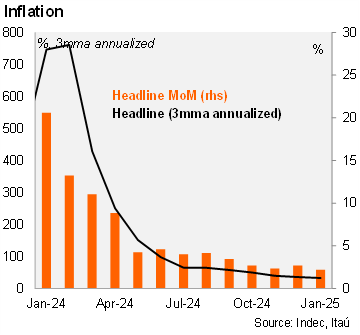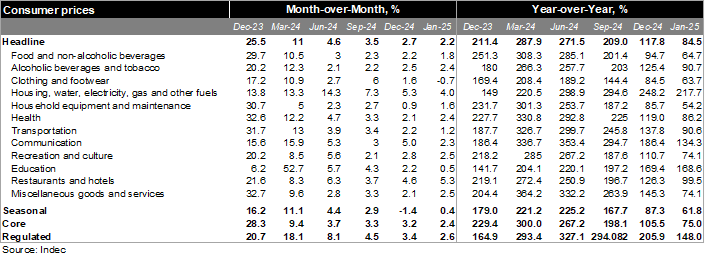According to Argentina’s statistical office (INDEC), consumer prices rose by 2.2% MoM in January, down from 2.7% MoM in December. The print was below the Bloomberg median of 2.3% MoM, leading to the fifth downside surprise in the last six months. At 2.2% MoM, the monthly print is the lowest since July 2020. On an annual basis, inflation declined to 84.5%, from 117.8% in 2024. Annualized quarterly inflation in January fell to 33.2%, down from 35.9% in the previous month.

The monthly core measure rose by 2.4% MoM in January, decelerating from the previous month (3.2% MoM). Moreover, the annual core reading fell to 75%, down from 105.5% in December. Prices for regulated products increased by 2.6% MoM and 148.0% YoY, led by higher housing rental prices and energy tariffs and fuels. Finally, prices for seasonal products increased by 0.4% MoM due to higher hotels and restaurants prices, with the annual reading fell to 61.8% in January, from 87.3% in the previous month.

Our take: We expect the disinflation process to continue in 2025 with headline inflation falling to 25% by year-end, well below the 117.8% yoy inflation in YE24. The INDEC will release CPI for the month of February on March 14.
